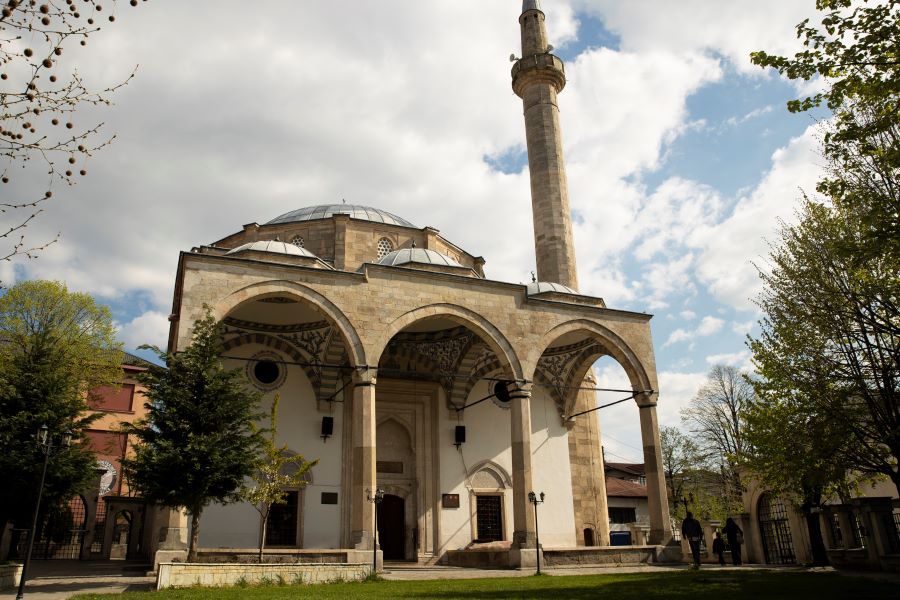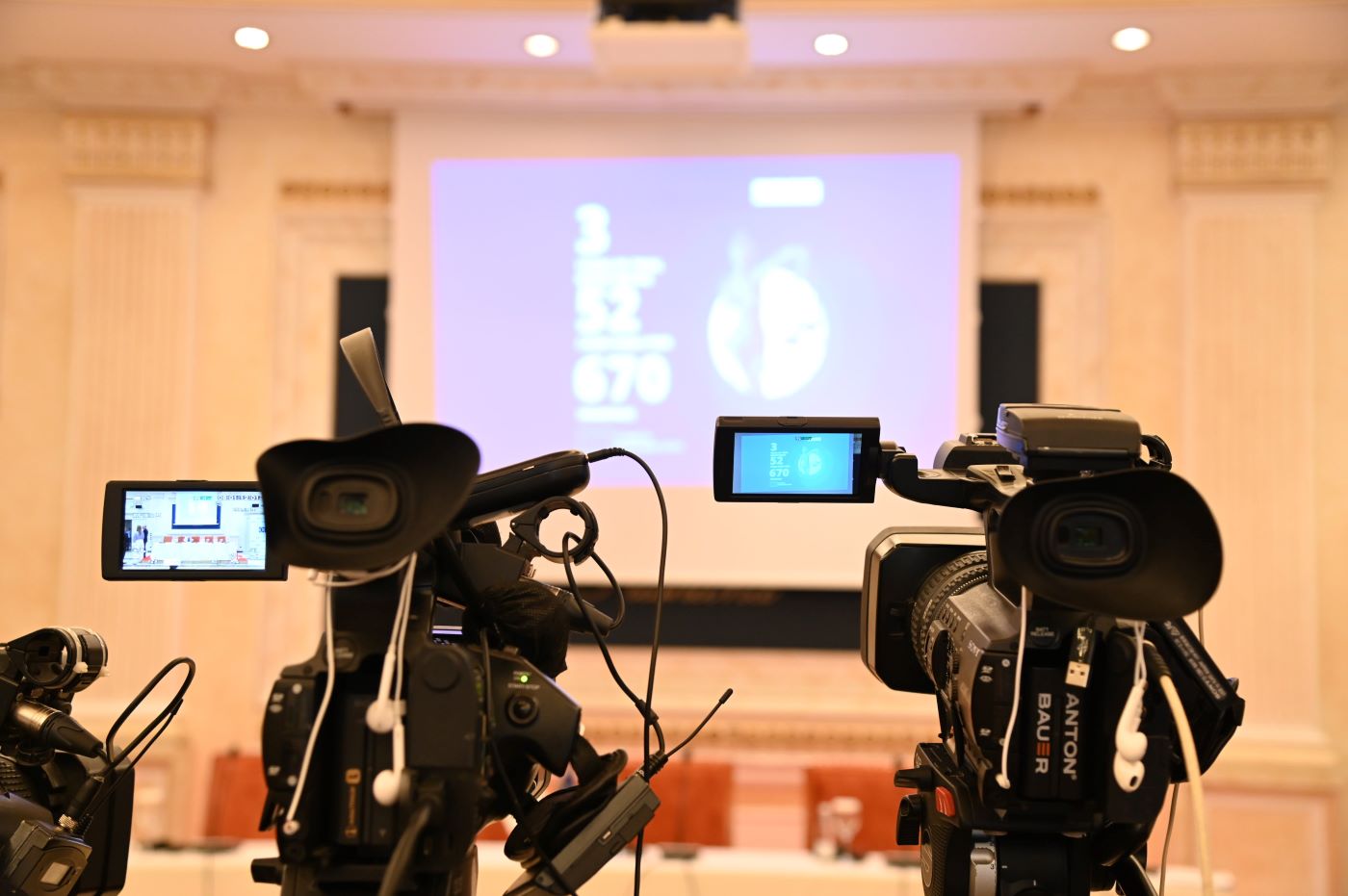Public discourse in Kosovo is filled with hate speech, which research reveals is often motivated by far-right political ideologies. However, the media remains ill-prepared to establish editorial filters that prevent the dissemination of far-right ideologies.
Kosovo’s public discourse is drenched with hate speech, which is driven by far-right extremist ideologies that target vulnerable communities, promote nationalism, and spread anti-globalist narratives. Amid this, media outlets lack robust editorial filters, allowing dangerous rhetoric to proliferate unchecked.
In 2022, an investigation by Kallxo Pernime identified at least five active far-right organisations in Kosovo. Police analyses further indicated that hidden cells of these organisations are still active in various aspects of society.
Messages opposing the LGBTQ+ community, anti-globalist rhetoric, calls against the constitutional order, anti-Islamic movements, and anti-immigration sentiments persist in public discourse and on social media in Kosovo.
In a recent reality TV show, Big Brother VIP Kosova, journalist Vullnet Krasniqi publicly came out as part of the LGBTQ+ community. His statement triggered a campaign on social media targeting him with hate and harassment. Data indicates that offensive narratives spilled into the show’s discussions. This same program had been penalised weeks earlier by the Independent Media Commission for promoting gender-based violence.
Hate speech against the LGBTQ+ community is one of the most radical manifestations of far-right extremism. Its effects have surfaced in various incidents.
In 2023, a performance supporting the transgender community during the “DokuFest” festival became a focal point for hate speech. These hateful calls culminated in a protest in Prizren, drawing hundreds of supporters, including Besim Berisha, the head of the Islamic Community in Prizren.
Manifestations of Anti-Globalist and Nationalist Movements

Prishtina Pride Parade, June 10, 2023. Photo: Atdhe Mulla/Prishtina Insight
Hate speech targeting the LGBTQ+ community is not the only reflection of far-right extremism in Kosovo. Anti-globalist movements are also evident in public discourse. Certain leaders are portrayed as being influenced by organisations like the Soros Foundation.
Social media platforms popular in Kosovo have been used to promote the idea that Prime Minister Albin Kurti is backed by the Soros Foundation.
Over the past three years, dozens of incidents in Kosovo have been motivated by far-right ideologies. In 2023, social media posts in Albanian called for a nationalist protest in Mitrovica. Kosovo Police issued a public warning against attending the protest, labelling it as potentially harmful and organised by unidentified groups.
According to police, “Security assessments confirm that many of these profiles are suspicious and that the posts may have malicious intent, ultimately harming citizens and the interests of the Republic of Kosovo.”
Far-right extremism, particularly ethno-nationalism, poses an even greater challenge within the Serbian community in Kosovo.
In 2023, Luan Keka, the head of counter-terrorism in Kosovo, confirmed the existence of at least five far-right movements. These groups are most active in Serbian-populated areas of Kosovo and on Serbian-language social media platforms.
On November 29, 2024, an explosion was reported in the Ibër-Lepenc canal (critical energy and water supply infrastructure) in the northern municipality of Zubin Potok. The explosive device was planted inside the canal and detonated around 7:00 PM. Hours earlier, a Telegram group named “Corridor” called for the destruction of cameras installed by Kosovo Police in the northern region.
The group “Corridor” has 13,133 members and frequently posts calls for action. It has also targeted “traitors of the nation,” sometimes referring to Serbian citizens working for local or central Kosovar institutions. Another Telegram group, “Sparta,” with over 14,000 members, occasionally promotes the idea of protecting Kosovo as Serbia’s “sacred land.”
Civil society organisations in northern Kosovo have noted nationalist tendencies even in Kosovo Police’s social media activity.
In December, these organisations published a report monitoring police social media posts, highlighting cases where officers used illegal symbols and gestures that emphasised ethnic and nationalist ideologies.
Anti-Islam Narratives

Imperial Mosque, built in 1461 by Sultan Mehmet II Fatih, in Prishtina, Kosovo. EPA/VALDRIN XHEMAJ
In addition to nationalist extremism, various groups promote anti-Islam narratives, portraying the religion as a threat to national identity and the state.
The “Deçan Movement,” a group of activists, garnered media attention by openly advocating for the removal of Islam from Kosovo’s Albanian population.
Ramadan Ilazi, a researcher at the Kosovar Center for Security Studies, KCSS, points out that far-right groups often establish fake news websites to spread disinformation.
“It’s a common practice among far-right extremists to create websites that appear to be legitimate news portals. They use these platforms to amplify their social media posts, transforming them into ‘news stories’ to give their views legitimacy. This practice is evident even in Kosovo, where media outlets sometimes fall prey to such tactics,” Ilazi told Kallxo.com.
He adds that far-right narratives in the Western Balkans, especially in Serbian media, often gain traction during tensions in Kosovo. “These media outlets frequently seek opinions from far-right members of EU parliamentary groups who openly oppose Kosovo.”
“Telegram is a preferred communication platform for far-right extremists in Kosovo. They use it to spread disinformation aimed at discrediting NATO, the EU, and the West while portraying Russia as a protector of Serbian interests,” Ilazi further notes.
Former Chief Inspector of the Kosovo Intelligence Agency, Burim Ramadani, explained that far-right narratives target post-conflict societies like Kosovo, exploiting their vulnerabilities.
“In post-conflict societies, understanding the goals of far-right narratives is more challenging due to lingering issues from the recent past,” Ramadani says.
Dren Gërguri, a journalism lecturer at the University of Prishtina, underscored the importance of clear editorial policies to critically address far-right narratives.
“Currently, not all media outlets in Kosovo allocate sufficient resources to address these narratives, which may reflect financial or capacity limitations,” Gërguri says.
According to him, considering that far-right narratives often use provocative and sensational language to attract attention, media reporting without confronting these narratives with a broader and critical context can lead to the spread of such ideas.
“Three main consequences could be in society: increased polarisation, normalisation of extremist ideas, and the incitement of violence,” Gërguri added.
Preparing Media to Face Far-Right Extremism

Photo: OSCE in Kosovo Official X account
The decision of the Independent Media Commission, IMC, to penalize Big Brother VIP Kosova for using denigrating language against women is seen as a signal that hate speech cannot penetrate professional media.
A survey conducted with most online media outlets in Kosovo, as part of this research, reveals that media lack clear editorial policies for addressing far-right extremism. However, some media outlets have reported taking measures to establish standards.
The Press Council of Kosovo, which has 50 members, noted that 47 members did not respond to inquiries for this research regarding editorial policies on far-right extremism.
‘Betimi për Drejtësi’ operating under the NGO Kosovo Institute for Justice, stated that it has internal editorial policies for specific areas of reporting.
“Adherence to ethical and professional journalism standards prevents the possibility of allowing extreme narratives,” Betim Musliu, editor-in-chief at Betimi për Drejtësi declared.
Kosovo 2.0, another member of the Press Council, ensured that when dealing with content that may contain hate speech, divisive, derogatory, or otherwise harmful material for a social group, such narratives are not reproduced, either through direct quotes or paraphrasing.
“Kosovo 2.0 ensures to provide full context and counter this language with facts that challenge these narratives.”
“Additionally, Kosovo 2.0 ensures that even in the comments sections, whether on Kosovo 2.0’s social networks or within its website, user-generated content, particularly comments, is moderated,” Gentiana Paçarizi, managing editor of this outlet explains.
Arbresh.info, another online media outlet, reports having internal regulations and editorial policies in place.
“There are some stories we do not release, such as hate-filled religious calls, hate speech against the LGBTQ community, etc. The missions and goals of such groups promoting religious, racial, national, gender-based hatred, and more, are not supported and are not given media space at Arbresh.info,” the paper responded.
Disclaimer: This article was developed in partnership with the regional initiative Western Balkans Anti-Disinformation Hub, implemented by the Metamorphosis Foundation with financial support from the Ministry of Foreign Affairs of the Kingdom of the Netherlands. The contents of the article are the responsibility of Kallxo.com and do not necessarily reflect the positions of the project partners and donors.





